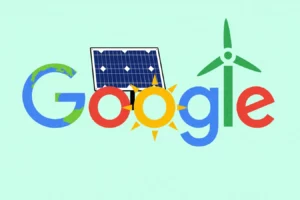Ericsson is a multinational telecommunications company that was founded in 1876 in Sweden. It has since become one of the leading providers of technology and services to the telecommunications industry. Over the years, Ericsson has played a significant role in the development of various generations of mobile networks, including 2G, 3G, and 4G. However, its most groundbreaking contribution to the industry is the development of 5G technology.
5G, or fifth-generation wireless technology, is the next evolution in mobile networks. It promises faster speeds, lower latency, and increased capacity compared to its predecessors. With 5G, users can expect download speeds of up to 10 gigabits per second, which is significantly faster than what is currently available with 4G. This means that tasks such as downloading large files or streaming high-definition videos will be much quicker and smoother.
In addition to faster speeds, 5G also offers lower latency, which refers to the time it takes for data to travel from one point to another. With 5G, latency can be reduced to as low as one millisecond, making it virtually instantaneous. This is crucial for applications that require real-time communication, such as autonomous vehicles or remote surgery.
The Impact of 5G on Telecommunications Industry
The introduction of 5G technology will have a profound impact on the telecommunications industry. One of the most significant benefits of 5G is its ability to provide faster and more reliable network speeds. This means that users will be able to download and upload data at much higher speeds, making tasks such as streaming high-definition videos or downloading large files much quicker and smoother.
Another key advantage of 5G is its increased capacity for data transfer. With more devices connected to the internet than ever before, current networks are struggling to handle the growing demand for data. 5G will be able to support a much larger number of devices simultaneously, allowing for seamless connectivity even in densely populated areas.
Furthermore, 5G will greatly improve connectivity for Internet of Things (IoT) devices. IoT refers to the network of physical devices, vehicles, appliances, and other objects embedded with sensors, software, and connectivity that enables them to connect and exchange data. With 5G, IoT devices will be able to communicate with each other more efficiently, leading to increased automation and improved efficiency in various industries.
5G and the Future of Healthcare
The healthcare industry is one of the sectors that will benefit greatly from the implementation of 5G technology. One of the key applications of 5G in healthcare is remote patient monitoring and telemedicine. With 5G, healthcare providers will be able to remotely monitor patients’ vital signs and health conditions in real-time. This will allow for early detection of any abnormalities or changes in patients’ health, enabling timely interventions and reducing the need for hospital visits.
Additionally, 5G will improve connectivity for medical devices. Many medical devices, such as pacemakers or insulin pumps, rely on a stable and reliable internet connection to transmit data to healthcare professionals. With 5G, these devices can operate more efficiently and securely, ensuring that patients receive the necessary care without interruption.
Furthermore, 5G will enable faster and more accurate diagnoses. With its low latency and high-speed capabilities, doctors will be able to access medical imaging results or consult with specialists in real-time. This will lead to quicker diagnoses and more effective treatment plans for patients.
How 5G is Revolutionizing Transportation Industry
The transportation industry is another sector that will be revolutionized by the implementation of 5G technology. One of the key benefits of 5G in transportation is improved safety features for autonomous vehicles. Autonomous vehicles rely on a constant and reliable internet connection to communicate with other vehicles, infrastructure, and pedestrians. With 5G, these vehicles will be able to make split-second decisions based on real-time data, leading to safer roads and reduced accidents.
Additionally, 5G will provide real-time traffic updates and navigation. With its low latency and high-speed capabilities, drivers will have access to up-to-date information about traffic conditions, road closures, or accidents. This will enable them to choose the most efficient routes and avoid congestion, saving time and reducing fuel consumption.
Furthermore, 5G will enhance communication between vehicles and infrastructure. This means that traffic lights, road signs, and other infrastructure elements can communicate with vehicles to provide real-time information or warnings. For example, a traffic light could send a signal to an approaching vehicle to slow down or stop if there is an obstruction ahead. This will improve traffic flow and reduce the likelihood of accidents.
5G and the Future of Education
The education sector is another industry that will be transformed by the implementation of 5G technology. One of the key applications of 5G in education is virtual and augmented reality in the classroom. With 5G, students can have immersive learning experiences through virtual field trips or interactive simulations. This will enhance their understanding of complex concepts and make learning more engaging and interactive.
Additionally, 5G will improve connectivity for remote learning. With the COVID-19 pandemic forcing many schools to switch to online learning, reliable internet connectivity has become more important than ever. With 5G, students in remote areas or underserved communities will have access to high-speed internet, enabling them to participate in online classes without interruption.
Furthermore, 5G will enable personalized learning experiences. With its low latency and high-speed capabilities, teachers can tailor educational content to individual students’ needs in real-time. This means that students can receive personalized feedback or access additional resources based on their learning pace or preferences. This will lead to more effective learning outcomes and improved student engagement.
The Role of 5G in Transforming Manufacturing Industry
The manufacturing industry is another sector that will benefit greatly from the implementation of 5G technology. One of the key advantages of 5G in manufacturing is increased efficiency and productivity. With its low latency and high-speed capabilities, 5G enables real-time communication between machines and systems. This means that manufacturers can monitor and control production processes remotely, leading to reduced downtime and improved overall efficiency.
Additionally, 5G will improve supply chain management. With its increased capacity for data transfer, 5G enables manufacturers to track and trace products throughout the entire supply chain in real-time. This means that manufacturers can identify bottlenecks or delays in the supply chain and take immediate action to resolve them. This will lead to more efficient inventory management and reduced costs.
Furthermore, 5G will enhance communication between machines and systems. With its low latency, machines can communicate with each other in real-time, enabling seamless coordination and synchronization. For example, robots on a production line can adjust their movements based on real-time data from other machines, leading to improved precision and accuracy in manufacturing processes.
5G and the Future of Agriculture
The agriculture industry is another sector that will be transformed by the implementation of 5G technology. One of the key applications of 5G in agriculture is precision farming and crop monitoring. With 5G, farmers can use sensors and drones to collect real-time data about soil conditions, weather patterns, or crop health. This data can then be analyzed to optimize irrigation schedules, fertilizer application, or pest control measures. This will lead to increased crop yields, reduced resource wastage, and improved sustainability in agriculture.
Additionally, 5G will improve connectivity for agricultural machinery. Many modern farming equipment, such as tractors or harvesters, rely on a stable and reliable internet connection to operate efficiently. With 5G, these machines can communicate with each other and with farmers in real-time, enabling seamless coordination and improved productivity.
Furthermore, 5G will provide real-time weather and soil data. With its low latency and high-speed capabilities, farmers can access up-to-date information about weather conditions or soil moisture levels. This will enable them to make informed decisions about planting or harvesting schedules, leading to more efficient resource allocation and reduced crop losses.
The Impact of 5G on Energy and Utilities Industry
The energy and utilities industry is another sector that will benefit greatly from the implementation of 5G technology. One of the key advantages of 5G in this industry is improved energy management and distribution. With its low latency and high-speed capabilities, 5G enables real-time monitoring of energy usage and distribution. This means that energy providers can identify areas of high demand or potential outages and take immediate action to optimize energy distribution. This will lead to more efficient energy management, reduced costs, and improved reliability.
Additionally, 5G will enhance communication between energy grids and devices. With its increased capacity for data transfer, 5G enables seamless communication between smart meters, appliances, and energy grids. This means that consumers can monitor their energy usage in real-time and make informed decisions about their consumption patterns. It also allows for demand response programs, where consumers can adjust their energy usage based on real-time pricing or grid conditions.
Furthermore, 5G will enable real-time monitoring of energy usage. With its low latency, energy providers can collect data about energy consumption in real-time. This means that they can identify areas of high demand or potential outages and take immediate action to optimize energy distribution. This will lead to more efficient resource allocation and reduced costs for both consumers and providers.
5G and Smart Cities: A Vision for the Future
The implementation of 5G technology will pave the way for the development of smart cities. Smart cities are urban areas that leverage technology and data to improve the quality of life for their residents. One of the key benefits of 5G in smart cities is improved traffic management and public transportation. With its low latency and high-speed capabilities, 5G enables real-time communication between vehicles, traffic lights, and infrastructure. This means that traffic flow can be optimized, reducing congestion and improving overall transportation efficiency.
Additionally, 5G will enhance public safety and emergency response in smart cities. With its increased capacity for data transfer, 5G enables real-time communication between emergency services, surveillance cameras, and other public safety systems. This means that emergency responders can receive real-time information about incidents or accidents, enabling them to respond more quickly and effectively.
Furthermore, 5G will enable smart infrastructure for energy and waste management in smart cities. With its low latency and high-speed capabilities, 5G enables real-time monitoring of energy usage, waste collection, or water management systems. This means that cities can optimize resource allocation, reduce waste, and improve overall sustainability.
The Endless Possibilities of 5G Technology
In conclusion, the implementation of 5G technology will have a profound impact on various industries and sectors. From telecommunications to healthcare, education to manufacturing, agriculture to energy and utilities, and even the development of smart cities, 5G promises to revolutionize the way we live and work.
With its faster speeds, lower latency, and increased capacity for data transfer, 5G will enable faster and more reliable network connections. This will lead to improved productivity, enhanced communication between devices and systems, and increased automation in various industries.
Furthermore, 5G will enable the development of innovative applications and services that were previously not possible with current networks. From remote patient monitoring and telemedicine to virtual and augmented reality in the classroom, 5G will enable personalized and immersive experiences that will transform the way we learn, work, and interact with the world around us.
Overall, the future of 5G technology is filled with endless possibilities. As more industries and sectors embrace this transformative technology, we can expect to see unprecedented innovation, growth, and improvements in various aspects of our lives. The era of 5G is upon us, and it is set to revolutionize the way we live and work in ways we can only begin to imagine.
















Add Comment